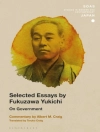Wide-ranging examination of women’s achievements in and influence on many aspects of medieval culture.
Medieval women were normally denied access to public educational institutions, and so also denied the gateways to most leadership positions. Modern scholars have therefore tended to study learned medieval women as simply anomalies, and women generally as victims.This volume, however, argues instead for a
via media. Drawing upon manuscript and archival sources, scholars here show that
more medieval women attained some form of learning than hitherto imagined, and that women with such legal, social or ecclesiastical knowledge also often exercised professional or communal leadership.
Bringing together contributors from the disciplines of literature, history and religion, this volume challenges several traditional views: firstly, the still-prevalent idea that women’s intellectual accomplishments were limited to the Latin literate. The collection therefore engages heavily with vernacular writings (in Anglo-Saxon, Middle English, French, Dutch, German and Italian), and also with material culture (manuscript illumination, stained glass, fabric and jewelry) for evidence of women’s advanced capabilities. But in doing so, the contributors strive to avoid the equally problematic view that women’s accomplishments were somehow
limited to the vernacular and the material. So several essays examine women at work with the sacred languages of the three Abrahamic traditions (Latin, Arabic and Hebrew). And a third traditional view is also interrogated: that women were somehow more ‘original’ for their lack of learning and and dependence on their mother tongue. Scholars here agree wholeheartedly that women could be daring thinkers in any language; they engage readily with women’s learnedness wherever it can be found.
KATHRYN KERBY-FULTON is Professor Emerita, University of Notre Dame; KATIEANN-MARIE BUGYIS is Assistant Professor, University of Notre Dame; JOHN VAN ENGEN is Professor Emeritus, University of Notre Dame.
Contributors: Asma Afsaruddin, Renate Blumenfeld-Kosinski, Amanda Bohne, Katie Ann-Marie Bugyis, Adrienne Williams Boyarin, Dyan Elliott, Thelma Fenster, Sean Field, Sarah Foot, Megan Hall, Ruth Mazzo Karras, Kathryn Kerby-Fulton, Rachel Koopmans, F. Thomas Luongo, Leanne Mac Donald, Gary Macy, Maureen Miller, Barbara Newman, S.J. Pearce, Anna Siebach-Larsen, Gemma Simmonds, David Wallace, John Van Engen, Nicholas Watson, Jocelyn Wogan-Browne,
Tabla de materias
‘Taking Early Women Intellectuals and Leaders Seriously’ – Kathryn Kerby-Fulton
‘Authorship and Intellectual Life: Jewish and Muslim Women’ – Ruth Karras
‘Gender, Scholarship, and the Construction of Authority in the Pre-Modern Muslim World’ – Asma Afsaruddin
‘The Historiography of Absence: Preliminary Steps Towards a New History of Andalusi Women Poets’ – S.J. Pearce
‘Medieval Anglo-Jewish Women at Court’ – Adrienne Williams Boyarin
‘Intellectuals, Leaders,
Doctores’ – David Wallace
‘Agnes of Harcourt as Intellectual: New Evidence for the Composition and Circulation of the
Vie d’Isabelle de France’ – Sean L. Field
‘Catherine of Siena,
Auctor’ – F Thomas Luongo
‘Christine de Pizan on the Jews, in Three Texts: The
Heures de contemplation sur la Passion de Nostre Seigneur Jhesucrist, the
Fais et bonnes meurs du sage roy Charles V, and the
Mutacion de Fortune’ – Thelma Fenster
‘Walking in Grandmothers’ Footsteps: Mary Ward and the Medieval Spiritual and Intellectual Heritage’ – Gemma C.J. Simmonds
‘New Solutions to Old Problems’ – Kathryn Kerby-Fulton
‘A Woman Author? The Middle-Dutch Dialogue between a ‘Good-willed Layperson’ and a ‘Master Eckhart» – John Van Engen
‘Recovery and Loss: Women’s Writing around Marie de France’ – Jocelyn Wogan-Browne
‘The Visions, Experiments, and Operations of Bridget of Autruy (fl. 1305-15)’ – Nicholas Watson
‘Methodological Innovations for the Study of Women’s Authorship and Agency’ – Nicholas Watson
‘Written with Her Own Hand: Perpetua’s Representation of Non-Binary Gender in Old English Hagiography’ – Leanne Mac Donald
‘The Materialization of Knowledge in Thirteenth-Century England: Joan Tateshal, Robert Grosseteste, and the Tateshal Miscellany’ – Anna Siebach-Larson
‘Networks of Influence: Widows, Sole Administration, and Unconventional Relationships in Thirteenth-Century London’ – Amanda Bohne
‘Religious Women in Leadership, Ministry, and Latin Ecclesiastical Culture’ – John Van Engen
‘Bede’s Abbesses’ – Sarah Foot
‘Women’s Latinity in the Early English Anchorhold’ – Megan J. Hall
‘The Treatment of Ordination in Recent Scholarship on Religious Women in the Early Middle Ages’ – Gary Macy
‘Saint Colette de Corbie (1381-1447): Reformist Leadership and Belated Sainthood’ – Renate Blumenfeld-Kosinski
‘Women Priests at Barking Abbey in the Late Middle Ages’ – K.A. Bugyis
‘Laywomen as Leaders’ – Dyan Elliott
‘Women Donors and Ecclesiastical Reform: Evidence from Camaldoli and Vallombrosa, c. 1000-1150’ – Maureen C. Miller
‘Laywomen’s Leadership in Medieval Miracle Cults: Evidence from Britain, ca. 1150-1250’ – Rachel Koopmans
‘Mechthild of Magdeburg at Helfta: A Study in Literary Influence’ – Barbara Newman
‘Positioning Women in Medieval Society, Culture, and Religion: An Epilogue’ – John Van Engen
Sobre el autor
AMANDA BOHNE is a Senior Lecturer in English at the University of Illinois at Chicago.












